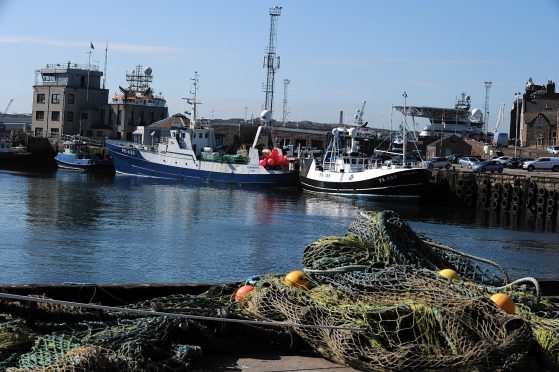An emergency beacon which has been triggering massive responses from the RNLI and Coastguard since June has been found – in a skip.
Volunteers from Peterhead had been forced to launch 11 searches of land and coastline for up to two hours at a time in response to emergency position indication radio beacon (EPIRB) distress signals.
The fruitless outings were attributed to one device which had been picked up by satellites within the town.
And yesterday morning it was finally found by an eagle-eyed crewman of the lifeboat when he was passing by the harbour’s skip. David Anderson, Peterhead Lifeboat’s press officer, said: “It looks like it was thrown out. The casing has been cracked and it generally isn’t in a good condition.
“It’s just an assumption, but it looks like it was triggering every time it got wet.”
He added the volunteer involved wanted to play down his part in solving the mystery of the machine.
He said: “He was even reticent about the crew finding out that it was him that found it.
“I was just told he found it within the harbour compound in a waste area, but the machine is with us just now at the lifeboat station.”
A spokeswoman for the Coastguard added that the machine would now be taken offline to prevent it firing again.
How it came to be in the skip, however, remains unknown.
“The RNLI gave us a call just before 12.10pm today, notifying us that they had found the EPIRB in a skip at Peterhead Harbour,” she added.
“We checked it with the ID we had on record and it was found to be the same EPIRB that had been intermittently activating.
“It’s now going to be deactivated and its battery taken out. For us, it’s very good news.
“Unfortunately, we still don’t know who the owner was. We have always said we believed it was being triggered accidentally and not as part of a hoax.
“But the best thing an owner can do is to register their EPIRB and then put it on their boat – it’s of no use in a skip.”
Duty controller Kaimes Beasley had previously advised boat owners to check their alarms to help “rule out all possibilities”.
He had been launching vital assets on searches of the area each time it triggered.
Calum Christie, a local coastal officer based with the Buchan Coastguard team, said volunteers were treating each alarm as a “real emergency”.
He said: “When this EPIRB goes off, it is treated as a distress signal, as if someone is in immediate danger and in need of assistance.
“We’ll search until we reach a suitable conclusion.”
